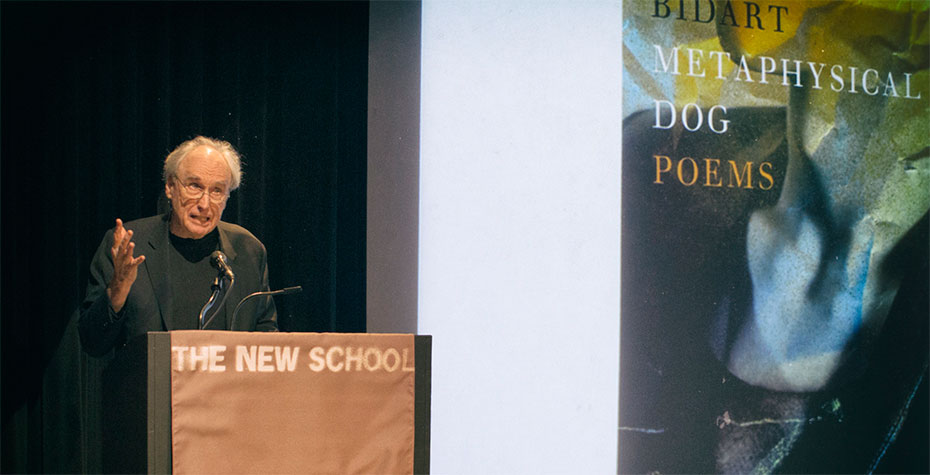Award Is Among Most Distinguished American Prizes Offered to Poets

Frank Bidart, Andrew W. Mellon Professor of the Humanities and Professor of English, has won the National Book Critics Circle Award for Poetry in recognition of his latest collection, Metaphysical Dog (Farrar, Strauss & Giroux, 2013). The award is the one of the most distinguished American prizes offered to a poet for a single publication.
Bidart is considered one of the most significant contemporary American poets writing today. Originally from California, he earned his B.A. at the University of California-Berkeley and an A.M. from Harvard, where he became friends with poets Robert Lowell and Elizabeth Bishop. As the Poetry Foundation notes, Bidart’s first two books, Golden State and The Book of the Body, attracted some critical acclaim, but it was his third, The Sacrifice, that established him as a truly original poet. Since then, Desire, Stardust, and Waiting for the Spring Festival have each been nominated for the National Book Award. He has also been nominated for the Pulitzer Prize on numerous occasions.
Bidart joined the Wellesley faculty in 1972 and teaches a range of courses, including creative writing workshops and seminars on modernist poetry.
The collection Metaphysical Dog deals with some of life’s most fundamental questions: sex, mortality, fear, family, home, and throughout all, the relationship of the poet to language. Bidart told fellow poet Shara Lessley, “What’s crucial for any writer is to understand how your mind apprehends meaning. How, in your experience, you apprehend significance. Understand it and find a way to embody it, make it have the force for the reader in a work of art that it has for you. Images, what the eye sees, is of course part of this for everyone. But I think tone of voice, situation, the look in an eye or on a face, are as much part of what make up for me ‘meaning’ as what traditionally people think of as ‘images.’”
Metaphysical Dog has received widespread acclaim from critics. Robert Boyes in The Nation declared that “No major poet of our time has been so unguarded as Bidart, so willing to travel to the dark places in the psyche, so recklessly earnest about his need to get to the bottom of things.” Stephen Burt praised the poet in the New York Times Book Review, saying, “Bidart writes through passion, but also through subtraction, leaving out all but the statements that seem essential to the soul, the desire, the wisdom, or the memory at hand. The results, however austere, can be revelations: His poems are doors best opened with cautious attention—behind them you might even see yourself.” Vanity Fair called the book a “champion,” while the New York Review of Books described Bidart as “our most classical poet.”
In his citation, the NBCC noted that Bidart “has made a poetry of forensics. Like W.B. Yeats, he has made brilliant poems and poetry out of his quarrel with himself and with humanity.”
Watch Bidart’s acceptance speech (the poetry award begins at minute 40:00) at the New School in New York City.
